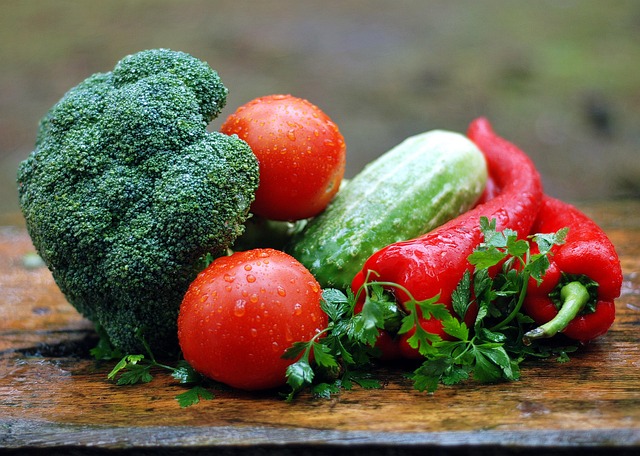
In recent years, organic food has transitioned from a niche market to a mainstream choice for consumers around the world. With increasing awareness about health, environmental sustainability, and food safety, organic food has become synonymous with a healthy lifestyle. However, the debate on whether organic food is truly superior to conventional food sources remains ongoing. This article aims to delve into the pros and cons of organic food, providing a balanced perspective for consumers and health enthusiasts.
Understanding Organic Food
Before discussing its merits and drawbacks, it is essential to understand what qualifies as organic food. Organic foods are produced through farming practices that avoid synthetic fertilizers, pesticides, genetically modified organisms (GMOs), and artificial additives. Organic farming emphasizes natural processes, biodiversity, and ecological balance, often resulting in food that is perceived as being safer and more nutritious.
The Pros of Organic Food
1. Reduced Chemical Exposure
One of the most compelling arguments for organic food is the reduced chemical exposure. Organic farming practices restrict the use of synthetic pesticides and fertilizers, minimizing consumers’ exposure to these potentially harmful substances. Studies have indicated that organic produce has lower pesticide residues compared to conventional produce, which is particularly important for vulnerable populations like children and pregnant women.
2. Environmental Benefits
Organic farming is often associated with environmental sustainability. By avoiding synthetic chemicals, organic farming practices contribute to the health of soil, water, and ecosystems. These practices promote biodiversity by using crop rotation, natural pest control, and organic fertilizers. Consequently, organic farming can result in less pollution, better soil fertility, and enhanced wildlife habitats.
3. Potential Nutritional Advantages
There is ongoing debate about whether organic food is more nutritious than conventionally grown food. Some studies suggest that organic produce may have higher antioxidant content and certain micronutrients, such as vitamin C, iron, and magnesium. Additionally, organic dairy and meat products often contain higher levels of omega-3 fatty acids due to the animals’ pasture-based diets.
4. Improved Animal Welfare
Organic farming standards often include guidelines for animal welfare, ensuring that livestock are raised in more humane conditions. Animals on organic farms generally have access to outdoor spaces, are not routinely given antibiotics or growth hormones, and are fed organic feed. These practices aim to enhance the quality of life for farm animals, which is a significant consideration for ethically-conscious consumers.
The Cons of Organic Food
1. Higher Cost
A major drawback of organic food is its cost. Organic products are typically more expensive than their conventional counterparts. The higher price is due to more costly farming practices, lower crop yields, and the certification process required for organic labeling. This cost difference can make organic food less accessible to low-income consumers, limiting their ability to make organic choices.
2. Limited Availability and Selection
Organic food may not be as readily available as conventional food, especially in areas with limited access to specialty grocery stores or farmers’ markets. Additionally, the selection of organic products can be limited, which might not cater to all consumer preferences. This limited availability poses a challenge for those who wish to fully commit to an organic diet.
3. Perishable Nature
Organic foods, particularly fruits and vegetables, tend to have a shorter shelf life than conventional products. This is due to the absence of synthetic preservatives and the focus on natural production methods. As a result, organic produce may spoil faster, leading to food waste if not consumed promptly.
4. Questionable Health Claims
While organic food is often marketed as a healthier choice, the evidence supporting certain health claims remains inconclusive. Some studies have shown slight nutritional benefits, but the overall health impact of consuming organic versus conventional food is still debated among scientists. Consumers should be cautious about assuming organic food is inherently superior in all aspects.
Conclusion
The decision to choose organic food involves weighing various factors, from health and environmental considerations to cost and accessibility. Organic foods offer clear advantages, such as reduced chemical exposure and environmental sustainability, but they also come with challenges, including higher costs and limited availability. Ultimately, the choice between organic and conventional food depends on personal values, health priorities, and budget. As consumers become more informed, they can make choices that align with their individual needs and contribute to a more sustainable food system.
Making Informed Choices
When deciding whether to purchase organic foods, it is essential for consumers to consider their priorities and conduct thorough research. Here are some tips to make informed choices:
1. Prioritize Certain Foods
If budget constraints limit the ability to buy organic, consider prioritizing certain foods known for higher pesticide residues, such as strawberries, spinach, and apples. The Environmental Working Group (EWG) publishes an annual “Dirty Dozen” list highlighting produce with the highest pesticide levels.
2. Explore Local Options
Local farmers’ markets often offer organic produce at competitive prices. By purchasing locally, consumers can support local agriculture and reduce the carbon footprint associated with transporting food over long distances.
3. Balance with Conventional Choices
For those who cannot fully commit to organic foods, a balance between organic and conventional products can still contribute to a healthier diet. Incorporating a variety of fruits, vegetables, whole grains, and lean proteins, regardless of their organic status, is essential for overall health.
4. Stay Informed
As research on organic food continues, staying informed about new findings is crucial. Consumers should seek out credible sources and scientific studies to understand the benefits and limitations of organic foods better.
Final Thoughts
Organic food presents a promising alternative to conventional agriculture, offering potential health and environmental benefits. However, it is not without its challenges. By considering the pros and cons, consumers can make informed decisions that align with their values and contribute to their well-being. Whether opting for organic or conventional, the focus should be on maintaining a balanced and nutritious diet, mindful of the broader implications on personal health and the environment.
#ChatGPT assisted in the creation of this article.







